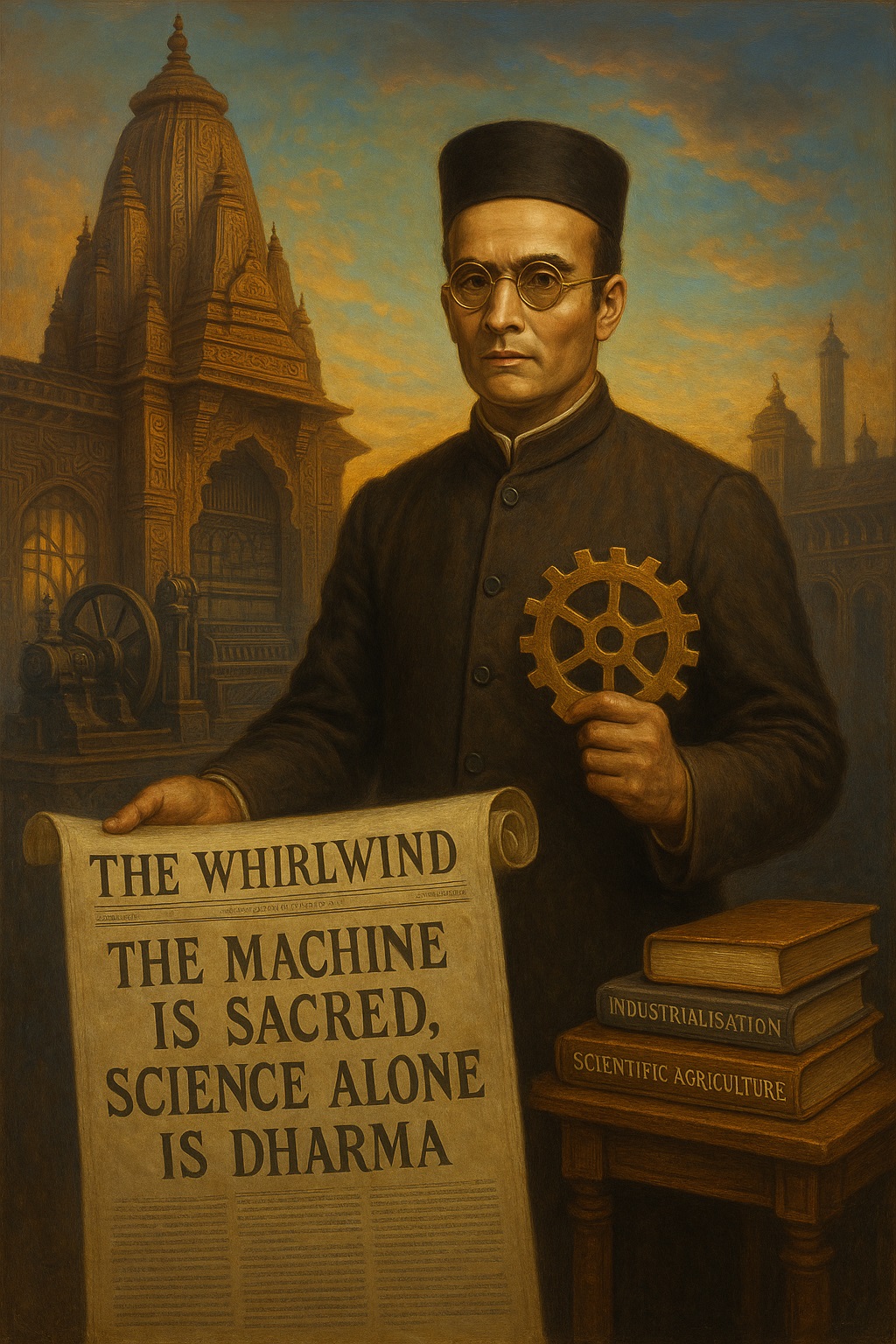Social-Reformist Dimension of Hindutva, Part 6; Savarkar’s Scientific Worldview Against Superstition (3/3)
Savarkar’s Vision: Embracing the Machine Age and the Religion of Science
In the concluding part of our series exploring the “Savarkar’s Scientific Worldview Against Superstition”, we delve deeper into his profound advocacy for a scientific worldview, particularly his enthusiastic embrace of the machine age. Savarkar saw machines not merely as tools of technological advancement, but as potent symbols of a modern, open mind.
Welcoming the Machine as a Blessing
Savarkar fervently championed the introduction of machines, envisioning a highly industrialized and developed society as the natural outcome of this technological revolution. He strongly believed that machines should be welcomed as a blessing to humanity, rather than condemned as a curse. This perspective underscored his commitment to progress and modernization, a stark departure from traditionalist viewpoints that often resisted change.
He rejected the notion that machines were a “ploy of evil forces” or that they introduced new forms of injustice and dependence. Savarkar dismissed such criticisms, asserting that any socio-economic disparities were rooted in the existing, deeply flawed social system, not in the advancement of industry and technology.
Science as the True Religion
Savarkar was adamant that India’s economic challenges – inequalities, poverty, unemployment, and exploitation – were not the fault of machines. He argued that the Indian people should recognize science as their true religion, a source of both knowledge and the ability to effectively utilize machines of all kinds.
By proclaiming science as a religion, Savarkar emphasized its foundational importance in building a modern, prosperous nation. He believed that embracing scientific principles and technological advancements was essential for India to overcome its socio-economic challenges and achieve true progress.
A Modern Vision for India
Savarkar’s advocacy for a scientific worldview and his enthusiastic embrace of the machine age reveal a forward-thinking and modern vision for India. He understood that progress was not about clinging to outdated traditions, but about embracing the tools and knowledge that could propel the nation forward.
His insistence on separating socio-economic issues from the inherent value of technological progress reflects a nuanced understanding of societal challenges. Savarkar’s call to recognize science as a religion was a powerful statement, urging Indians to adopt a rational, evidence-based approach to building a better future.
Final Thoughts
Savarkar’s perspective on the machine age and his emphasis on science as a guiding principle highlight his commitment to a progressive, modern India. His views remain relevant today as we continue to navigate the complexities of technological advancement and socio-economic development.
Savarkar believed machines were a “blessing.” Do you agree with his view on technology? Savarkar argued that India should treat science as a “religion.” What do you think of this idea? Savarkar dismissed criticisms of machines as ‘evil.’ How do you think he would view modern concerns about technology? Share your insights in the comments below!
Sources:
DESHPANDE, Sudhakar. 1999. Savarkar. The Prophetic Voice. Dastane Ramchandra & Co.: Pune.
PHADTARE, T. C. 1975. Social and Political Thought of Shri V.D. Savarkar. A Thesis submitted to the Marathwada University for the Degree of Doctor of Philosophy. Unpublished: Aurangabad.


Leave a Reply